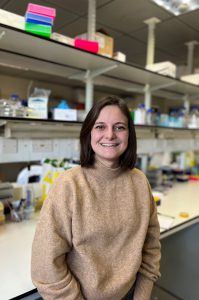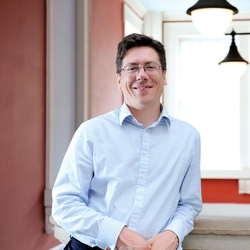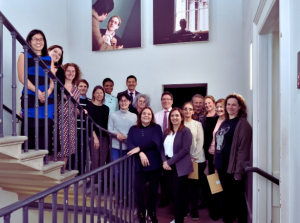We are pleased to announce the winner of the 2022 Tadion Rideal prize, Dr Francesca Mattedi!
This award was instituted in 1983 by a gift of £10,000 from Dr J. Tadion to commemorate his association with the late Sir Eric Rideal FRS and King’s College London.
The prize of £1,000 is awarded annually and is open to doctoral students of King’s College London who have carried out research for a PhD degree in Molecular Science. ‘Molecular Science’ is defined broadly and inclusively as: Research that involves studies at the molecular level.
Students are nominated by their supervisors; an expert panel of academics in the relevant fields assesses the nominations and provide a shortlist to the Director of Research Talent who selects the winner based on their recommendations.
Meet this year’s winner, Dr Francesca Mattedi:
It is a great honour for me to receive the 2022 Tadion Rideal Prize for my PhD thesis. I would like to thank my supervisor Dr. Alessio Vagnoni for his guidance over the years, as well as the members of the lab and all those who supported me during this time.
Before my PhD, I studied Cellular and Molecular Biotechnology at the University of Trento. During my Master’s I enrolled in two ERASMUS programmes, which gave me the opportunity first to join the lab of Prof. Dorothee Dormann at the Ludwig-Maximilians-Universität in Munich and then to move to UCL in London to work on my Master’s thesis. There, under the supervision of Prof. Pietro Fratta and Prof. Giampietro Schiavo, I investigated the effects of an ALS-causing FUS mutant on RNA metabolism and translation. During this time, I developed a strong interest in the mechanisms regulating intracellular trafficking, a crucial process for the maintenance of neuronal functionality because of the distinctive cellular architecture of neurons.
With this in mind, in February 2018 I started my PhD in the lab of Dr. Alessio Vagnoni at the Maurice Wohl Clinical Neuroscience Institute, King’s College London. My work focused on the study of the interplay between mitochondrial dynamics and function, to understand how they influence each other and how their impairment contributes to neuronal ageing. To this aim, a significant part of my project involved the development of optogenetic tools for the manipulation of both mitochondrial function and dynamics with spatiotemporal precision. I really enjoyed this process and I believe that generating innovative techniques is essential to improve our ability to answer scientific questions and our understanding of biological processes.
After my PhD, I was keen on applying the expertise I gained during this experience to investigate the pathways leading to neurodegeneration in human cellular models. Therefore, I have joined the lab of Prof. Pietro Fratta at the UCL Institute of Neurology as a postdoctoral research fellow. Here, I model the loss of TDP-43 nuclear function in human iPSC-derived lower motor neurons to study how it affects axons and neuronal physiology in ALS.

